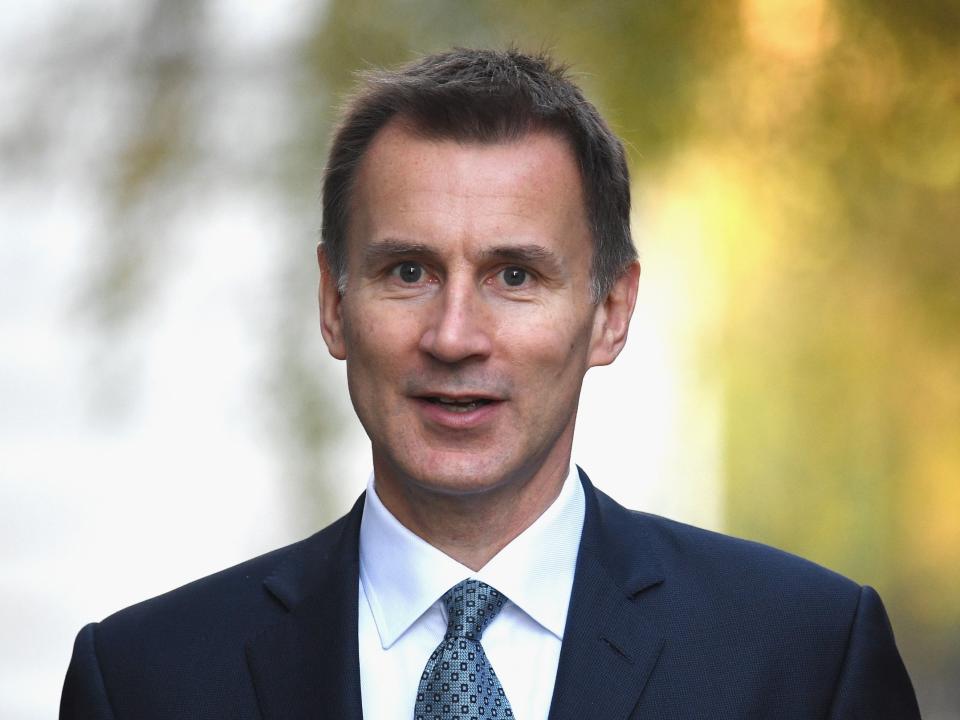Iran must stop using innocent British prisoners as political tools, Jeremy Hunt says ahead of official visit

Foreign secretary Jeremy Hunt is travelling to Iran today to hold talks on the fate of the country’s nuclear deal, Nazanin Zaghari-Ratcliffe – the British Iranian woman who has spent two and half years under imprisonment charged with spying in Tehran – and the coming peace talks aimed at ending the Yemen war.
Mr Hunt is the first western foreign minister to visit the country since Donald Trump unilaterally abandoned the deal and imposed sanctions on Iran and punitive penalties on foreign companies which continue to do business with Tehran.
The other signatories to the Joint Comprehensive Plan Of Action (JCPOA) – Britain, France, Germany, Russia and China – have repeatedly stressed that Iran is abiding by the agreement, as has the UN. The European Union is putting in place commercial mechanisms aimed at compensating firms which suffer from American penalties.
Mr Trump is furious at western allies not following him in pulling out of the deal. He is reported to have berated Theresa May over the UK’s stance when she telephoned to congratulate him on the “victory” he had claimed in the midterm elections, despite losing control of the House of Representatives to the Democrats.
The US president was said to be in a foul mood after being extensively criticised for failing to pay his respects to American war dead at the centennial of the First World War armistice in France because it was raining.
While reiterating the UK’s commitment to the nuclear deal, Mr Hunt will express concern in Tehran at reports, including one by the UN, that the Iranians have been supplying ballistic missiles and other weapons to the Houthis, who are fighting a Saudi-led coalition in Yemen.
According to the Foreign Office, he will urge the Iranian government to halt the supplies and give its full backing to coming peace talks in Stockholm.
“The Iran nuclear deal remains a vital component of stability in the Middle East by eliminating the threat of a nuclearised Iran,” Mr Hunt is expected to say.
“It needs 100 per cent compliance though to survive. We will stick to our side of the bargain as long as Iran does. But we also need to see an end to destabilising activity by Iran in the rest of the region if we are going to tackle the root causes of the challenges the region faces.”
Iran has denied arming the Houthis and attacked the west, including the UK, for selling weapons to the Saudi-led coalition which has been bombing Yemen for the last three years, causing the deaths of around 15,000 people and destroying hospitals and schools. Another 50,000 have died from the ongoing famine caused by the conflict.
On Ms Zaghari-Ratcliffe and other jailed dual nationals, Mr Hunt will say: “More than anything, we must see those innocent British-Iranian dual nationals imprisoned in Iran returned to their families in Britain.
“I have just heard too many heartbreaking stories from families who have been forced to endure a terrible separation. So I arrive in Iran with a clear message for the country’s leaders: putting innocent people in prison cannot and must not be used as a tool of diplomatic leverage.”
Diplomatic sources, however, point out that one of the reasons for the lack of progress over Ms Zaghari-Ratcliffe’s release is that the US reneging on the nuclear deal has strengthened the hands of hardliners in the Iranian hierarchy and made it difficult for President Rouhani’s reformist government to pave the way for her to be freed.

 Yahoo News
Yahoo News 